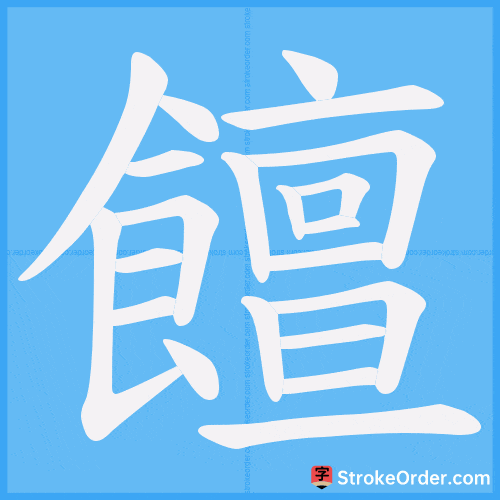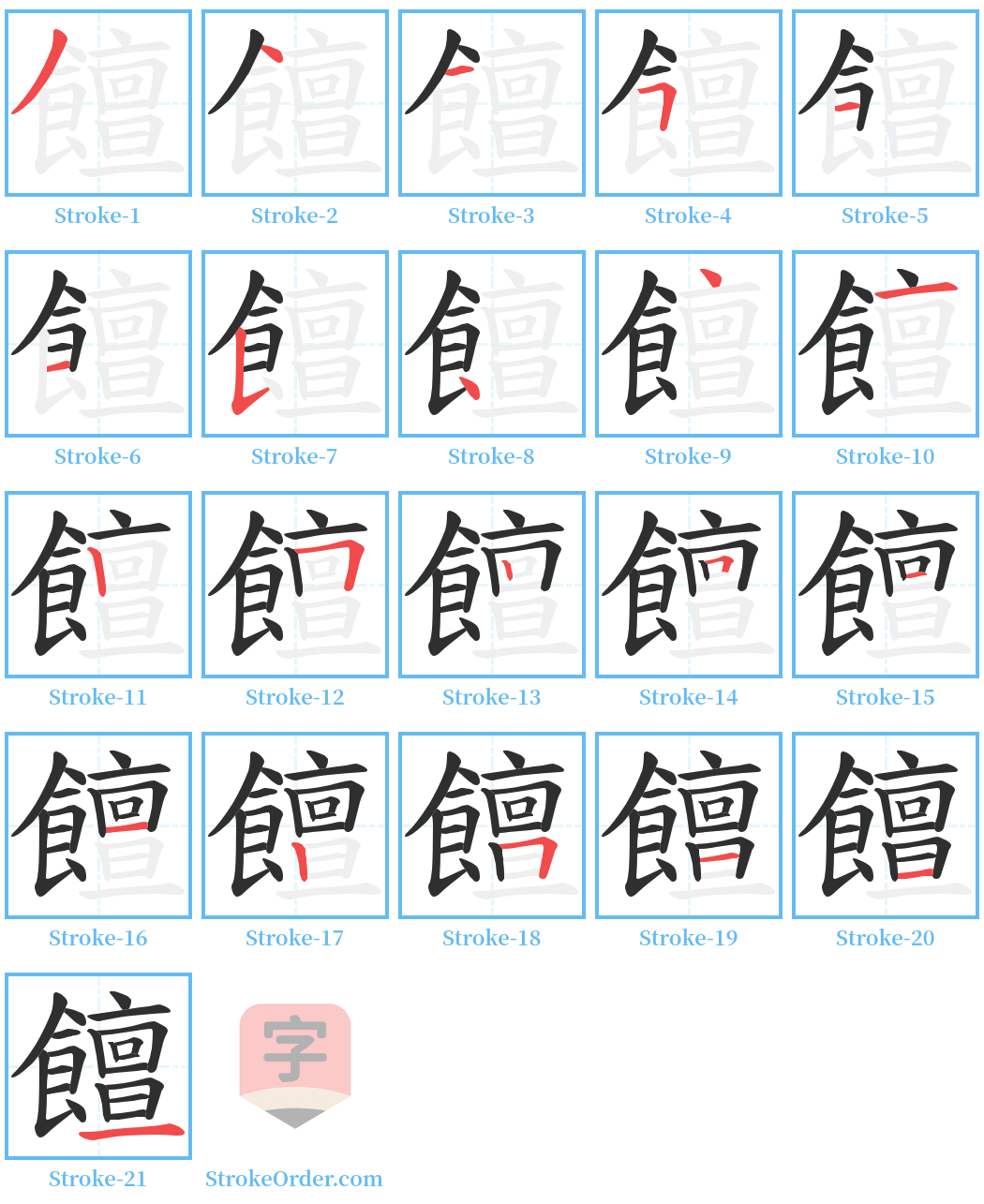饘 Stroke Order
Animated Stroke Order of 饘

Stroke Order Diagrams for 饘

Information of 饘
Pinyin
zhān
Radical
飠
Strokes
21 strokes
Usage
★★
Definition
饘 [zhān]
1. 稠粥 (thick gruel)
- Usage: “~粥之食。” (Food made from thick gruel.)
2. 煮或吃 (to cook or eat thick gruel)
- Usage: “~于是,鬻于是,以餬余口。” (Cooked and consumed to sustain oneself.)
---
饘 [zhān] - noun
1. 稠粥 (thick gruel)
- Reference: 《说文》: 饘,糜也。从食,亶声。周谓之糜木,谓之饘。按,厚者曰饘,稀者曰粥。 (According to "Shuowen," 饘 means thick gruel. It comes from the character for food, and sounds with a 'd' sound. In the Zhou period, it was called 糜木 and referred to as 饘. It is noted that the thick type is called 饘, while the thin is called 粥.)
- Usage: 《方言一》: 相谒而食麦饘。注: “糜也。” (In "Dialect One": When visiting, one eats wheat gruel. Note: "It refers to糜.")
- Example: 《左传·僖公二十八年》: 宁子职纳橐饘焉。 (From "Zuo Zhuan": Ningzi Zhi used to take the supply of thick gruel.)
- Example: 崔浩《食经序》: 饥馑仍臻饘蔬糊口。 (Cui Hao's "Food Monograph": In times of famine, one still survives on thick gruel and vegetables.)
- Example: 宋·司马光《训俭示康》: 昔正考父饘粥以糊口。 (Sima Guang's "Teaching Frugality to Kang": In the past, Zheng Kao Fu supported himself using thick gruel.)
2. (Reference to Zheng Kao Fu, a minister from the Spring and Autumn period, an ancestor of Confucius.)
3. 泛指稀饭 (general term for gruel; porridge)
- Reference: 《礼记·檀弓》: 饘粥之食。 (From "Liji": Food made from gruel.)
- Example: 饘饘 (gruel with vegetable soup); 饘食 (referring to gruel).
- Example: 饘饮 (gruel with vegetable soup).
---
饘 [zhān] - verb
1. 煮粥 (to cook gruel; to make congee)
- Reference: 《史记·孔子世家》: 饘于是,粥于是,以饘余口。 (From "Records of the Grand Historian": So one cooked the gruel, and through the gruel, one sustained themselves.)
2. 吃饭 (to eat; to have a meal)
- Reference: 黄庭坚《武昌松风阁》: 野僧早饥不能饘。 (Huang Tingjian's "Wuchang Songfeng Pavilion": The wild monk was so hungry in the early hours that he couldn't cook for himself.)